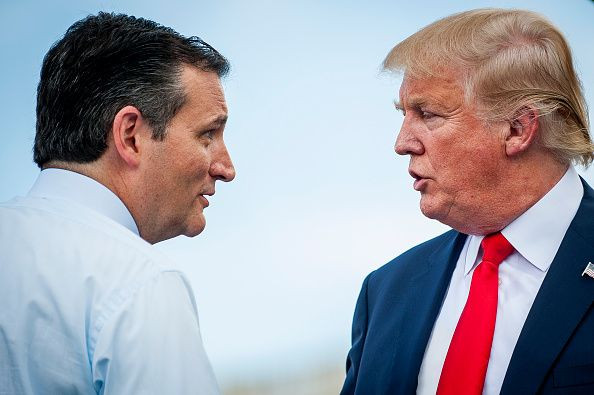New Study Finds A Divided Republican Party Could Cost The GOP The 2016 Election

If the Republican Party wants to snag the White House, it should put up a united front before Election Day in November. In years where a political party was divided, it was less likely to win the presidential election, according to a University of Georgia study.
The study, published in the journal Political Behavior, found that national party division has a significant impact on election outcomes. Researchers say the Republican nominee could lose more than 3 percent of the vote in November if the party is not united.
“History shows that when one party is divided and the other party is united, the divided party almost always loses the presidential election,” said Paul-Henri Gurian, a political science professor at the University of Georgia School of Public and International Affairs. “Consider, for example, the elections from 1964 through 1984; in each case the divided party lost.”
Divisive state primaries can contribute to an unfavorable outcome, the study found. Researchers offered this example: In Georgia, Democratic front-runner Hillary Clinton grabbed 71 percent of her party’s vote in the state primary, while Republican front-runner Donald Trump received 39 percent of the Republican vote. Based on the study’s model, if Trump was nominated, he would lose almost 1 percent of the vote in Georgia in the general election.
If the 2016 contest reflects other recent presidential elections, even a slight reduction in support can cost a party the election. Researchers calculated how much Trump would stand to lose if the current proportions persist through the election season and he is the nominee. As of March 16, Trump had received 39.5 percent of the total national Republican primary vote, while Clinton had received 58.6 percent of Democratic support. Based on the study’s formula, generated from past elections, Trump would lose 4.5 percent of the vote in the general election because of his party’s division.
“In close elections, such as 2000, 2004 and 2012, 4-5 percent could change the outcome in terms of which party wins the presidency,” Gurian said.
© Copyright IBTimes 2025. All rights reserved.






















